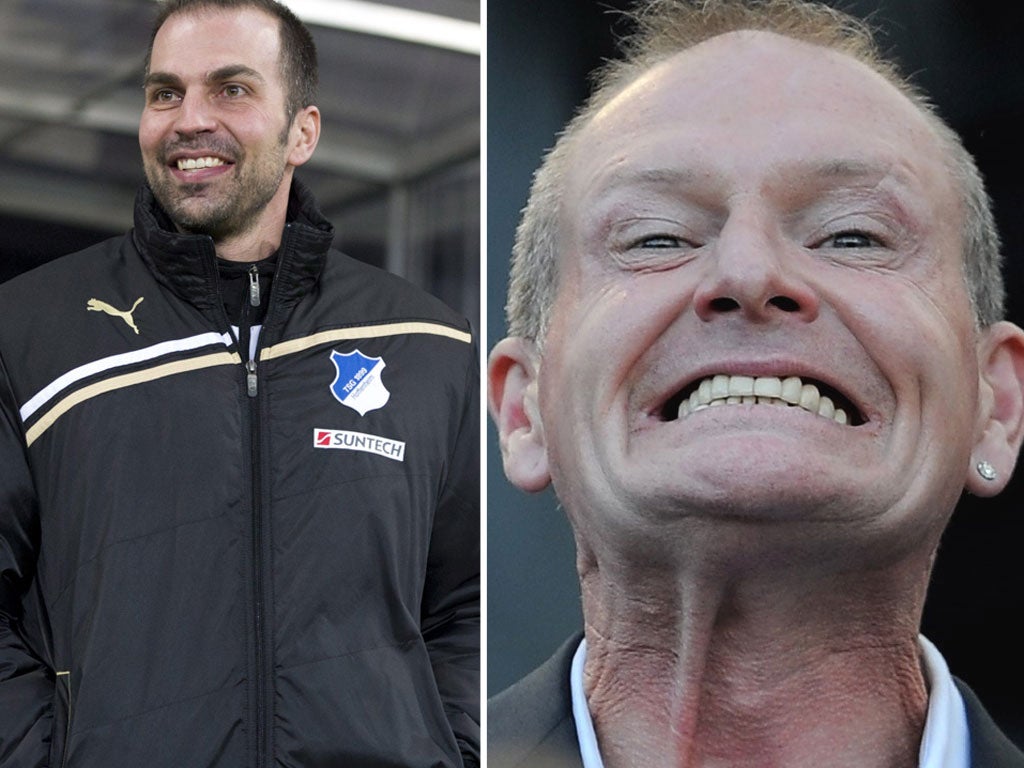Sam Wallace: It's not just Gazza left behind by Germans of '96

Your support helps us to tell the story
From reproductive rights to climate change to Big Tech, The Independent is on the ground when the story is developing. Whether it's investigating the financials of Elon Musk's pro-Trump PAC or producing our latest documentary, 'The A Word', which shines a light on the American women fighting for reproductive rights, we know how important it is to parse out the facts from the messaging.
At such a critical moment in US history, we need reporters on the ground. Your donation allows us to keep sending journalists to speak to both sides of the story.
The Independent is trusted by Americans across the entire political spectrum. And unlike many other quality news outlets, we choose not to lock Americans out of our reporting and analysis with paywalls. We believe quality journalism should be available to everyone, paid for by those who can afford it.
Your support makes all the difference.It is almost 16 years since Stuart Pearce scored his penalty against Germany in the shoot-out at the end of England's semi-final at Euro '96, a brief moment of exhilaration in what turned out to be another famous disappointment chalked up by the national team.
On Wednesday, Pearce returns to Wembley as the manager of the England team, in all likelihood for just one game, but nonetheless having risen higher up the coaching hierarchy than any of his fellow Englishmen in the squad or on the pitch that warm June evening.
What became of the boys of '96? Aside from Pearce and Nick Barmby (in the squad), there are no current managers among them. There is an FA director (Gareth Southgate), a Premier League first-team coach (David Platt) and two out-of-work managers (Paul Ince, Tony Adams). There are pundits (Alan Shearer plus squad members Jamie Redknapp and Gary Neville).
There are those from Euro '96 who have simply slipped out of the mainstream (Darren Anderton, Steve McManaman), a celebrity ice dancer (David Seaman), a professional poker player (Teddy Sheringham) and the sad tangle of a life that is Paul Gascoigne.
This was the first generation to earn Premier League salaries, so the need to go straight into management upon retirement was not as pressing as it had been. You could take the viewpoint that the careers of Pearce and his team-mates post-playing have been pretty consistent with the usual divergent patterns of any profession – until, that is, you study what the Germany team from Euro '96 have done since then. To a man, the Germany first XI that started the semi-final have worked in football at some point in their post-playing careers. Many are still heavily involved.
The 1996 alumni includes a current Bundesliga manager (Markus Babbel), a Bundesliga chairman (Stefan Kuntz), the technical director of the German FA (Matthias Sammer) and the German national goalkeeping coach (Andreas Köpke). There is also the coach of Bayern Munich's reserves (Mehmet Scholl) and the coach of the Germany Under-16s (Steffen Freund) ... and so on.
And some in the squad who did not play in the semi: Oliver Bierhoff, who scored both goals in the final, runs the Germany national team as a general manager for Joachim Löw. Löw's predecessor was Jürgen Klinsmann, another of Germany's boys of '96. Fredi Bobic is sporting director of Stuttgart.
It is a remarkable roll-call. By way of comparison, the development of England's players of the same era looks feeble. As a snapshot of two countries' different attitudes towards the development of ex-players, it is telling.
Who takes the blame? To some extent it must be the players, but there must also be a concern about the opportunities given to former players. For example, Sol Campbell, another Euro '96 squad member, with 73 caps, is showing worrying signs of falling off the football radar. It is hard to believe it would happen in Germany.
Not all former internationals can have the kind of post-playing career that Klinsmann, Babbel, Sammer and Bierhoff have enjoyed but must the difference between countries be so marked? A telling stat: 13 of the Bundesliga's 18 clubs are managed by Germans but only four out of 20 Premier League clubs have Englishmen in charge. A further 11 clubs are managed by Scottish, Welsh or Northern Irishmen but, whatever way you cut it, that is of little use when the FA wants to appoint an Englishman as national manager.
Join our commenting forum
Join thought-provoking conversations, follow other Independent readers and see their replies
Comments